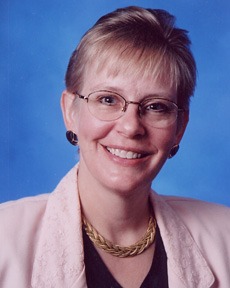Seniors, Elders, Aging Adults, People of Age, Old People, Mature Adults, Geriatric? All people perceive age in different ways at different times in their lives, and Baby Boomers are an entirely unpredictable bunch.
Today, more than ever, financial advisors need to develop a comfortable relationship by listening to how clients present themselves. We need to adapt our views on aging before we speak when it comes to the way individuals identify themselves in their personal aging process.
Some individuals feel that using “elderly” can be perceived similar to using terms such as “deaf” or “disabled” which creates a category without acknowledging that that category is composed of individuals. In other words, it’s perceived similar to saying “those people.”
How Views on Aging Change Throughout Life
- As teenagers – 20 seems over the hill and anyone over 30 is irrelevant.
- Those over 30 usually stop looking back and start looking forward – dreading turning 40.
- Speaking of the hill – we see 50 as half a hundred – need I say more?
- Perhaps if you have taken good care of yourself, remain in good health and have an upbeat attitude you find that you get a second wind at 60 and again begin to look forward to all those Golden Years ahead! For these people life is good and other people begin to notice you and make positive comments about “hoping to be like you at that age.” Take this as a compliment!
- Today more individuals seem to be working or volunteering into their 70s. It could be due to financial necessity or a career choice. They are maintaining or building their finances.
- So then many people find themselves in their 90s and wonder how they got there – but they turn out to be movers and shakers – literally. They might move a little slower, but these individuals have spirit and just won’t let themselves be stopped.
- Now per this CNN article – enter the fastest growing age group. Centenarians (aged 100+) have increased by 44% since the year 2000.
Considerations for the Financial Planning Professional
Does your client identify themselves through a younger persona? Have you heard that 60 is the new 30? Increasingly, products are created to make older individuals appear and feel younger. These are the individuals that continually shift the ‘Elderly Line’ like it’s drawn in the ever-shifting desert sand. Safe to say that they do not think of themselves as elderly, they won’t act elderly and they will require assets to support their active lifestyle.
Age and planning options can be relevant to career choices. In addition to their personal lifestyle and their financial standing, consider how your client identifies their age with their work ethic and career lifestyle. In addition to chronological aging and psychological aging you also need to qualify how an individual perceives their aging as it involves their contribution to their community and to their society.
Sound familiar? At 70, a Billionaire becomes the oldest President of the United States. At 35, Serena Williams won the Australian Open – that is really old in court years.
Defining “Elderly”
America may never be able to have a single formulary to agree on who is “elderly” (pardon the label!) at what age. Some agencies in states, like Rhode Island, identify 60 as the age an individual is regarded as elderly. In Hawaii a 55 year old is considered elderly.
Nationally, the IRS Tax Counseling for the Elderly has a program that offers free tax advice to anyone 60 or older. An individual can collect full Social Security benefits at 66 if born 1943-1954, at 65 if born 1955-1959 and will gradually rise to 67 for those born in 1960 or later. This handy Social Security calculator can help determine specifics.
Even the medical community models have issues with identifying who is elderly. Some assign the age of 75 while others look at 65 as the typical threshold.
By proactively understanding how clients perceive themselves at their present age – at all times throughout your ongoing relationship – you’ll see their view change and that change might not be what you expected. In addition, you are also aging and your views regarding “age” are changing, too.
Finally, your client(s) will have family members of varying ages and these family members are getting older along with each of their individual views and financial interests evolving as well. These constantly altered views will impact the process of change as it relates to themselves, to your client and to you as their planning professional.
In Conclusion
On the lighter side, there are possible exceptions in an individual’s thinking because Boomers are whole heartily rejecting terms like senior citizen and elderly while universally embracing these same terms in order to be eligible for their “senior discounts” in retail and dining situations.
Either way, your clients may consider “elderly” more of a state of mind than an actual age, although certain legal and financial criteria, principals and protections still apply at various ages. And the critical question for your expert financial planning advice may not be whether someone else thinks of themselves or even you as elderly, but how you think of each other as it relates to their strategic “planning for life.”





